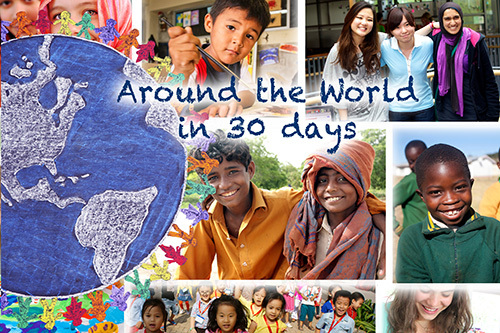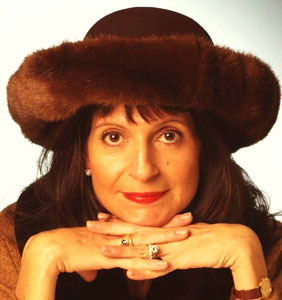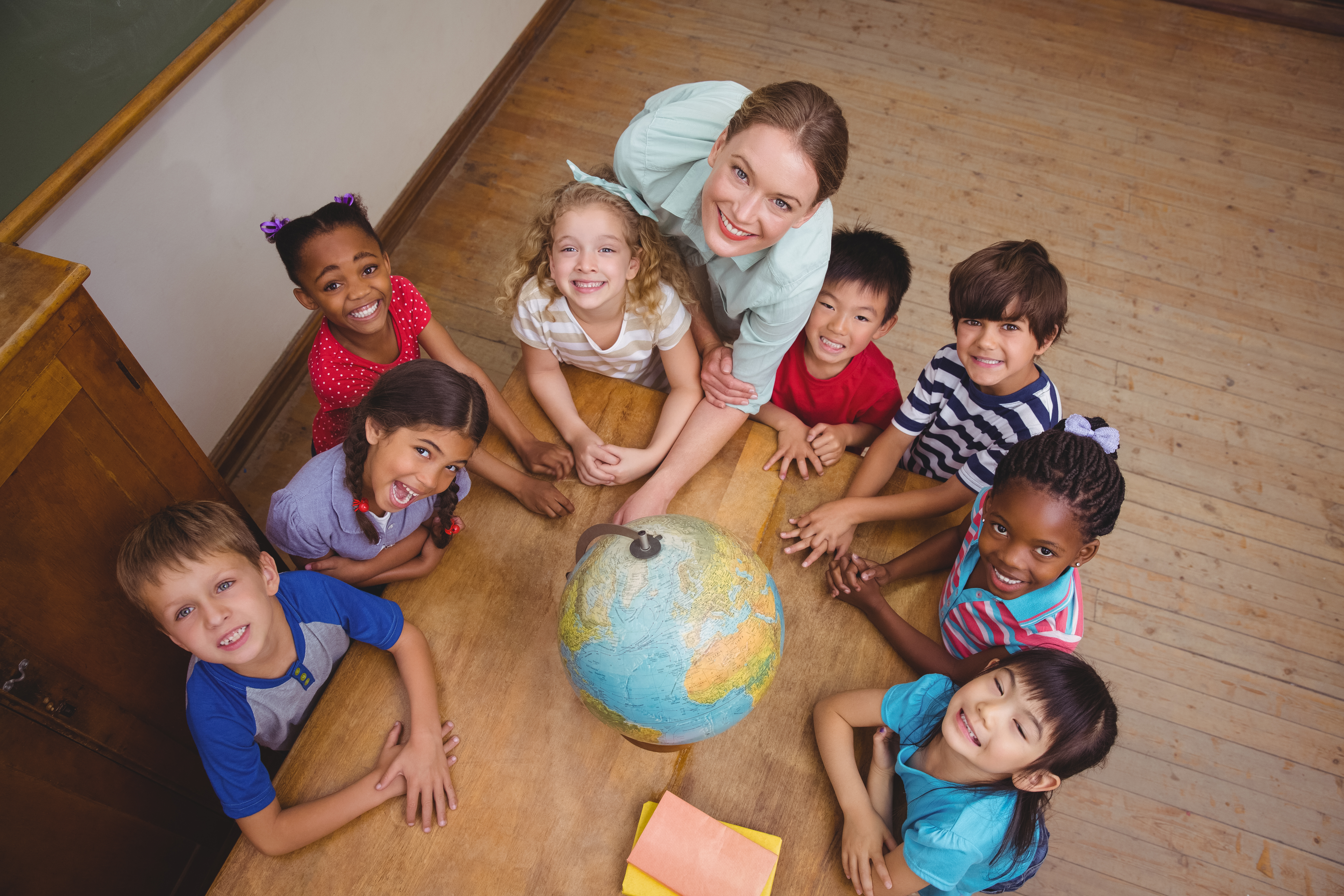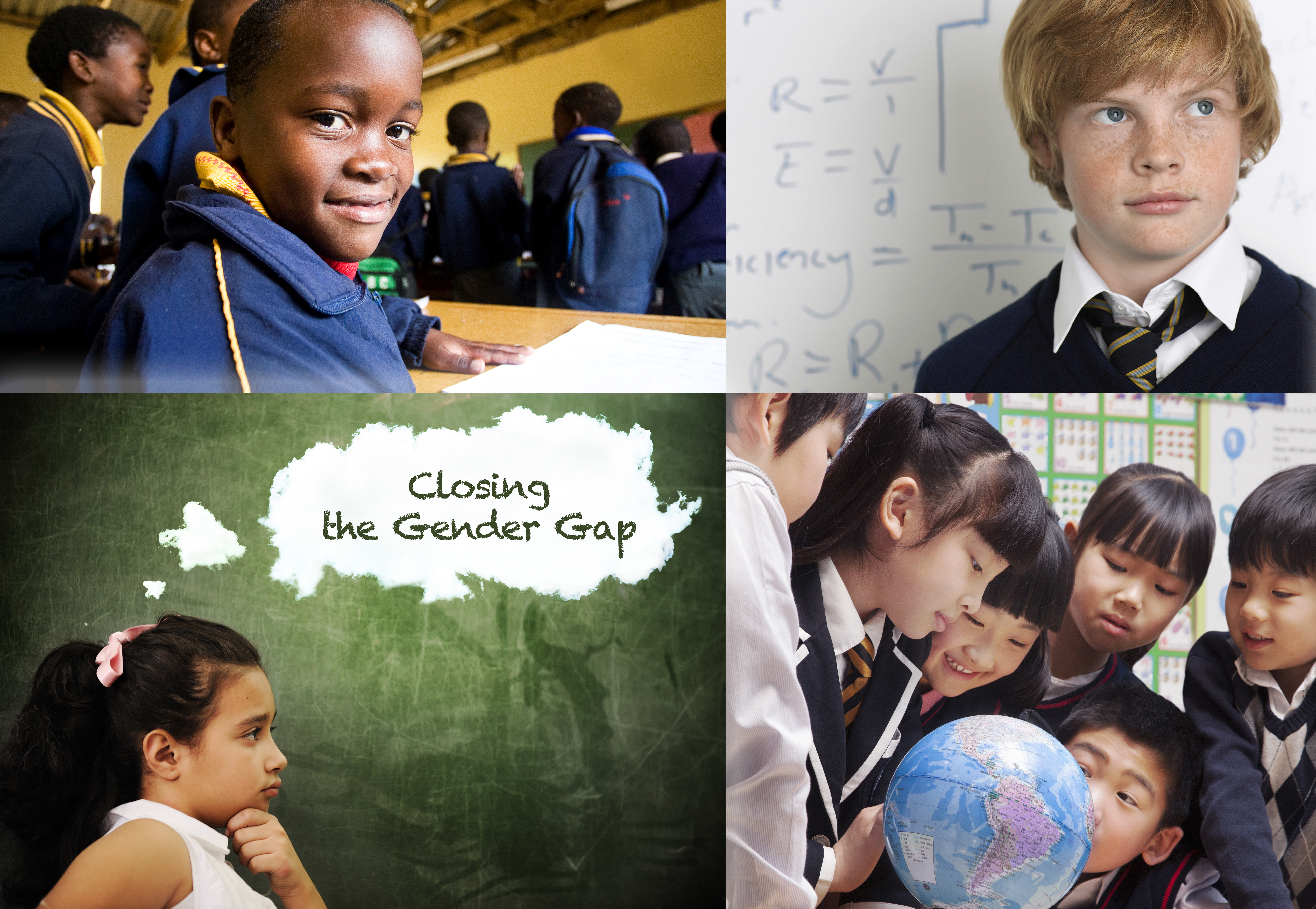
From Education Fast Forward’s 17th debate in partnership with UNESCO at Mobile Learning Week in Paris, à notre Twitter chat sur le multiculturalisme en partenariat avec Edmodo, pour interviewer le Top 10 finalistes pour le Prix mondial des enseignants de la Fondation Varkey, à l'exploration des technologies de pointe que cela change l'éducation musicale, to welcoming the voices of new experts to our global teacher blogging team, it was a stimulating and revealing month around the world.
“Innovation et qualité: Deux côtés de la même pièce?” était le titre du débat d'éducation Fast Forward 17e mondiale à la Semaine de l'apprentissage mobile à Paris en partenariat avec l'UNESCO. The debate brought together thought leaders from all over the globe to discuss the latest news and views on the impact of mobile technology in life-long learning. “Technology has the potential to unlock new approaches to assessment that will change what and how we teach,” said Jim Wynn, who noted that “the current curriculum shape and form that we see around the world with subjects taught in silos has to change.” Lord Jim Knight noted that the most convincing way he has seen technology utilized in education is flipped learning. “Cette technique devrait voir plus d'enseignants poussant le contenu d'apprentissage aux élèves à l'avance de la classe, pour permettre ensuite face à face le temps à l'école pour être utilisé plus efficacement pour intégrer l'apprentissage,” he stated.
When our present and our future is inevitably a highly interconnected world, competencies like global openness, empathie, respect, adaptability and critical-thinking are no longer merely ‘helpful’ to students, they are essential for them to flourish. “Teaching in a Global Landscape – Mindful Multiculturalism in Today’s Classroom” was the timely topic of our Twitter Chat hosted by Edmodo and ourselves which, not surprisingly, was trending on Twitter during the event. Featured guests Dr. William Gaudelli, Jessica Kehayes, and Dana Mortenson joined teachers and twitter users from all over the world to share practices in fostering global competency. Key insights into the future of global education were offered, including one from Jessica, Executive Director at the Asia Society: “The more we can promote understanding and perspective-taking, and encourage explanation of your own thinking while respectfully hearing others, the more opportunity there is for new thinking to emerge and communities to be strengthened. Building relationships with the community can and should start early, promoting all members of our society as important voices, including our youngest.”
Narrowed down from 8,000 nominations in 148 pays à travers le monde, the Varkey Foundation’s Prix mondial Teacher 2016 came up with a list of ten finalists. Just prior to Pope Francis announcing Hanan Al Haroub the winner I had the honor to interview all the finalists. Aqeela Asifi, Ayub Mohamud, Colin Hegarty, Hanan Al Haroub, Joe Fatheree, Kazuya Takahashi, Michael Soskil, Richard Johnson, Maarit Rossi, and Robin Chaurasiya shared their perspectives with me on how to make teaching a more prestigious career. Hanan Al Haroub insisted that “…teachers are the real power in this world. Ils sont les seuls qui peuvent changer les sociétés, ceux qui peuvent créer des générations productives et actives…” Donc, teachers should be treated with more respect and dignity. Nous devrions “provide salaries and conditions to entice bright, esprits novateurs / créatifs et soulever le profil de la profession…” suggested Richard Johnson. The future of education may be grim in places where teachers are not valued as an integral part of a prosperous society. As Mike Soskil said, “Seulement lorsque nous traitons les enseignants comme les professionnels qu'ils sont, nous allons voir le succès que nous désirons dans nos écoles.”
Craig Swann is the Founder and Chief Imagination Officer of Looplabs. Looplabs is a free, collaboration, cloud-based music studio that lets anyone, regardless of technical skills or ability, easily make, share, and discover music. While Looplabs is exciting for both amateur producers and music enthusiasts alike, it is also making waves in the education world. “Allowing a teacher to set up a project and then let every student interact and build off that one piece, but yet having them all connected at the same time, provides powerful ways to learn by doing it together.” Because Looplabs is designed to help beginners make music – “it allows for easy, intuitive ways to explore composition, to test, and try things…” – it makes for a wonderful tool to allow youth to discover their creative abilities. Et, importantly for educators: it’s free!
Ce mois, La recherche globale pour l'éducation welcomed an expanded panel of experts as the new Top Global Teacher Bloggers. For their introductory collaboration we asked them a controversial yet essential question in global education: “Quels sont les meilleurs exemples que vous avez vu des enseignants combler l'écart entre les sexes dans l'éducation?” Maarti Rossi explained that, “Il est important que les écoles délibérément mélanger les sexes dans les salles de classe…” It’s also essential to engender self-respect and the self-confidence in every student, regardless of gender. Miriam Mason-Sesay summarized this practice wonderfully: “The idea is to catch them young to teach them their value and make sure that negative messages never get a chance to take hold.” Warren Sparrow identified the difficulties that many young boys have in education: “Un phénomène étrange en Afrique du Sud est qu'il ya plus de garçons que de filles à l'école primaire, but this gets reversed in high school and tertiary institutions.” Richard Wells suggested that this can be remedied by “l'enseignement retourné ou l'apprentissage par projet. Cela est lié aux garçons qui ont besoin d'être fait plutôt recevoir. Most boys need to be active learners.”
Nos remerciements à tous nos amis et sympathisants à travers le monde.
(Toutes les photos sont une gracieuseté de CMRubinWorld)


Rejoignez-moi et leaders d'opinion de renommée mondiale dont Sir Michael Barber (Royaume-Uni), Dr. Michael Bloquer (États-Unis), Dr. Leon Botstein (États-Unis), Professeur Clay Christensen (États-Unis), Dr. Linda Darling-Hammond (États-Unis), Dr. MadhavChavan (Inde), Le professeur Michael Fullan (Canada), Professeur Howard Gardner (États-Unis), Professeur Andy Hargreaves (États-Unis), Professeur Yvonne Hellman (Pays-Bas), Professeur Kristin Helstad (Norvège), Jean Hendrickson (États-Unis), Professeur Rose Hipkins (Nouvelle-Zélande), Professeur Cornelia Hoogland (Canada), Honorable Jeff Johnson (Canada), Mme. Chantal Kaufmann (Belgique), Dr. EijaKauppinen (Finlande), Le secrétaire d'Etat TapioKosunen (Finlande), Professor Dominique Lafontaine (Belgique), Professeur Hugh Lauder (Royaume-Uni), Seigneur Ken Macdonald (Royaume-Uni), Professeur Geoff Masters (Australie), Professeur Barry McGaw (Australie), Shiv Nadar (Inde), Professeur R. Natarajan (Inde), Dr. PAK NG (Singapour), Dr. Denise Pape (États-Unis), Sridhar Rajagopalan (Inde), Dr. Diane Ravitch (États-Unis), Richard Wilson Riley (États-Unis), Sir Ken Robinson (Royaume-Uni), Professeur Pasi Sahlberg (Finlande), Professeur Manabu Sato (Japon), Andreas Schleicher (PISA, OCDE), Dr. Anthony Seldon (Royaume-Uni), Dr. David Shaffer (États-Unis), Dr. Kirsten immersive, (Norvège), Chancelier Stephen Spahn (États-Unis), Yves Thézé (LyceeFrancais États-Unis), Professeur Charles Ungerleider (Canada), Professeur Tony Wagner (États-Unis), Sir David Watson (Royaume-Uni), Professeur Dylan Wiliam (Royaume-Uni), Dr. Mark Wormald (Royaume-Uni), Professeur Theo Wubbels (Pays-Bas), Professeur Michael Young (Royaume-Uni), et le professeur Zhang Minxuan (Chine) alors qu'ils explorent les grandes questions d'éducation de l'image que toutes les nations doivent faire face aujourd'hui.
La recherche globale pour l'éducation communautaire page
C. M. Rubin est l'auteur de deux séries en ligne largement lecture pour lequel elle a reçu une 2011 Upton Sinclair prix, “La recherche globale pour l'éducation” et “Comment allons-nous savoir?” Elle est également l'auteur de trois livres à succès, Y compris The Real Alice au pays des merveilles, est l'éditeur de CMRubinWorld, et est une fondation perturbateurs Fellow.
Suivez C. M. Rubin sur Twitter: www.twitter.com/@cmrubinworld





Commentaires récents